This article was co-authored by Trudi Griffin, LPC, MS. Trudi Griffin is a Licensed Professional Counselor in Wisconsin specializing in Addictions and Mental Health. She provides therapy to people who struggle with addictions, mental health, and trauma in community health settings and private practice. She received her MS in Clinical Mental Health Counseling from Marquette University in 2011.
There are 11 references cited in this article, which can be found at the bottom of the page.
This article has been viewed 89,438 times.
A mental breakdown, sometimes referred to as a nervous breakdown, can be caused by the culmination of symptoms from a number of mental disorders. A mental breakdown generally occurs when the mental disorders you suffer from are so bad that you can no longer function normally in your everyday life.[1] If you have recently experienced a mental breakdown, there are ways you can work on your life to help yourself recover.
Steps
Getting Mental Help
-
1Determine the underlying cause. You will need to work with your doctor and therapist to determine the underlying mental illness that led to your mental breakdown. This will help you determine what the best mode of treatment is, including the right therapy, medication, and other treatment options.[2]
- You will need an official diagnosis from your doctor or therapist. You will need to describe your symptoms and behaviors that led to your mental breakdown to determine your underlying disorder.
-
2Go to therapy. There are many forms of psychotherapy that can be used to help after a mental breakdown. The one you use will depend on a mixture of your personal preference and the underlying mental disorder that led to your breakdown. Talk with your doctor about which treatment is best for you. These forms of therapy include:[3]
- Talk therapy, where you and your therapist work through your issues by talking
- Cognitive behavior therapy, a form of psychotherapy which focuses on changing your thoughts in order to change your behaviors
- Interpersonal therapy, which focuses on your relationships with others.
Advertisement -
3Join a support group. After your breakdown, you should look into a mental health support group. This will help you connect to others that are going through similar things and provide you with the support you need to recover. Talking to others about your problems can help you gain perspective and get helpful advice about how to cope.[4]
- Ask your doctor for a referral to a local support group. You can also look into national foundations, such as the National Alliance of Mental Illness (NAMI) for local chapters with support groups.
-
4Consider medication. Depending on the underlying cause of your mental breakdown, you may need to start taking medication. This will help relieve the symptoms of the mental illness that contributed to your mental breakdown and can help you level out your moods.[5]
- Your doctor and psychologist will let you know which medications you will need. These can include antidepressants, anti-anxiety medications, or other similar medications.
- If you are uncomfortable with any medication prescribed to you, ask you doctor if it is necessary. If your doctor won't listen to your reservations about it, get a different opinion.
Focusing on Yourself
-
1Be kind to yourself. One of the best ways to help you recover after a mental breakdown is to be kind to yourself. This means you shouldn't beat yourself up if you have a hard day or don't feel like getting out of the house. You can only learn to heal if you allow yourself to process everything in your own time.
- Avoid thinking of yourself as a failure if you need to take a day off or if you don't meet every goal you set. Recovery takes time.
-
2Write in a journal. A good way to come to terms with your mental issues is through a mood journal. Write down what you feel everyday and what made you feel that way. Go back over your diary at the end of the week to see patterns in your behaviors.[6]
- This will help you figure out what thought patterns that lead you to feel certain ways. You can also identify your triggers.
- Once you learn this, you can work with your therapist to change negative behaviors and avoid triggers.
-
3Find meaning in your breakdown. In order to come to terms with your breakdown, you can look for meaning in what happened to you. Think about how you can change and grow after your breakdown instead of focusing on getting back to the way you were.
- You can use meditation, inspirational or self help books, or religious faith to help with this.
-
4Rebuild your relationships. Your mental breakdown may have caused you to pull away from those around you. As part of your recovery, reach out to those you may have ignored or lost touch with while you were going through your breakdown. Try to reform or renew these relationships so you can get back part of your life before the breakdown.[7]
- This may be hard if you don't want to disclose exactly what happened to you. Be as honest as you are comfortable with.
-
5Avoid isolation. The worst thing you can do is suffer in silence when you are recovering from a breakdown. Reach out to your family and friends for support. Having someone you can count on will help you feel more supportive and positive about your recover.[8]
- Start going out to social events again, as long as you feel comfortable in them. If you have to, start small, such as a one on one for coffee, and work your way up.
-
6Realize it will take time. You will not come back from a mental breakdown overnight. It is a long process where you work on yourself, work through your feelings, and pinpoint the underlying conditions that caused your breakdown. Don't be too hard on yourself, though. You need to make sure you take as long as you need to heal.[9]
- Don't give yourself a time table either. You don't want to stress yourself out by worrying about meeting a schedule of recovery.
Shifting Your Life
-
1Simplify your life. Being overwhelmed with too much stress and responsibility in your life can make your recovery from a breakdown hard. If there are obligations in your life that cause you stress and anxiety, try to cut these out. If overextended yourself with too many obligations, get out of as many as you can so you feel more comfortable with doing your daily activities.[10]
- Make sure you give yourself permission to do less without feeling like a failure.
-
2Find an active hobby. A good way to move towards recovery is to be more active and find new interests. Try new active hobbies, such as bike riding, hiking, running, gardening, or dancing.[11]
- This will give your mind something to focus on instead of your recovery and release tension.
-
3Get creative. A good way to express your feelings is through creative arts. This give you a channel for you to let things out that you might not feel comfortable getting out other ways. Try painting, photography, writing, or other creative endeavors that you are passionate about.[12]
- If you aren't very creative, still try something new to help you get your feelings out.
-
4Reduce your stress. Stress is a major cause in mental breakdowns. In order to avoid the possibility of slowing down your recovery, reduce the amount of stress in your life. Practice breathing techniques, try yoga or other calming exercise, sleep enough, and take breaks throughout the day.[13]
- This will help you feel better as you move forward in your recovery because you won't be worried about every little thing.
- Also learn to structure your time. This will help you not feel overwhelmed or stressed while you are recovering.
-
5Avoid making life altering decisions. When you are recovering from a breakdown, you do not need to make huge decisions about your life. Avoid moving across the country, quitting your job (unless it contributed to your breakdown), breaking up with your partner, or other large decisions that might impact your while life.
- You want to make sure you are in a proper place to make those decisions, one where you are stable enough to think through all the alternative and repercussions of your actions.
-
6Change your nutrition. You can help improve your mood and mind by improving your nutrition. Eat more natural foods, such as fruits, vegetables, whole grains, and other healthy ingredients. Avoid fatty foods, take out, processed foods, and other unhealthy foods.[14]
- You want to make sure you feel your best inside and out so you can devote energy to your recovery.
- Also increase your water intake to improve your health.
References
- ↑ https://www.theguardian.com/theobserver/2000/sep/10/features.magazine37
- ↑ https://www.healthdirect.gov.au/nervous-breakdown
- ↑ https://www.nami.org/About-Mental-Illness/Treatments/Psychotherapy
- ↑ https://www.mind.org.uk/information-support/drugs-and-treatments/peer-support/about-peer-support/
- ↑ https://www.healthdirect.gov.au/nervous-breakdown
- ↑ https://www.urmc.rochester.edu/encyclopedia/content.aspx?ContentID=4552&ContentTypeID=1
- ↑ https://www.betterhealth.vic.gov.au/health/servicesandsupport/relationships-family-and-mental-health
- ↑ https://www.psychologytoday.com/us/blog/living-mild-cognitive-impairment/201606/the-health-benefits-socializing
- ↑ https://www.mentalhealth.gov/basics/recovery-possible
- ↑ https://www.psychologytoday.com/us/blog/what-mentally-strong-people-dont-do/201807/5-ways-simplify-your-life
- ↑ https://www.headtohealth.gov.au/meaningful-life/purposeful-activity/hobbies
- ↑ https://www.headtohealth.gov.au/meaningful-life/purposeful-activity/hobbies
- ↑ https://www.nami.org/Your-Journey/Individuals-with-Mental-Illness/Taking-Care-of-Your-Body/Managing-Stress
- ↑ https://www.urmc.rochester.edu/encyclopedia/content.aspx?ContentID=4552&ContentTypeID=1
About This Article
If you’re recovering from a mental breakdown, reach out to loved-ones because the worst thing you can do is suffer alone. Keep in mind that recovery is a long process that may have painful instances, since a full recovery means you must come to terms with any issues that led to your mental breakdown in the first place. One way to make the recovery process easier is to keep a mood journal, which will make it easier for you to spot negative thought patterns. Try to write in the journal daily, and go back every once in a while to remind yourself how much you've grown and look out for any triggers that might lead to a relapse. If you ever find negative thoughts in your mood journal, try to remember to be kind to yourself by recognizing that you are not a failure. For more advice from our Counseling co-author, like how to simplify your life, keep reading.

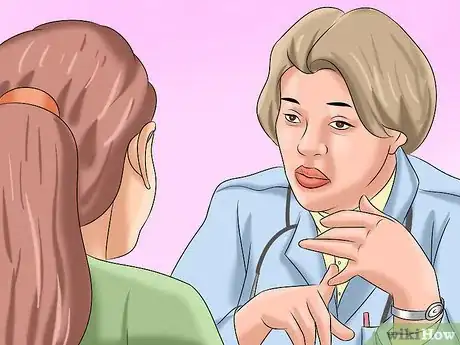
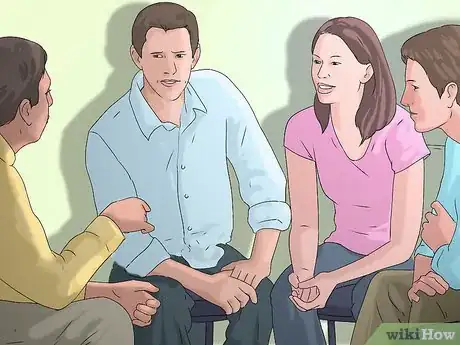
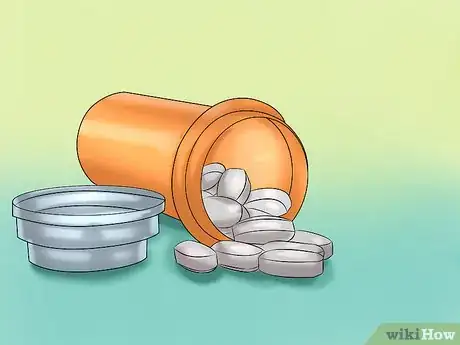

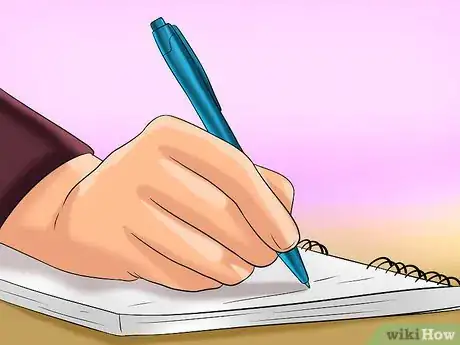


















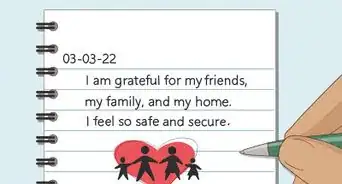
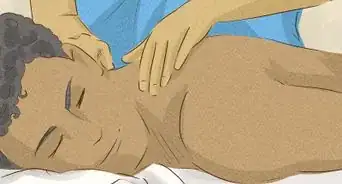





















































Medical Disclaimer
The content of this article is not intended to be a substitute for professional medical advice, examination, diagnosis, or treatment. You should always contact your doctor or other qualified healthcare professional before starting, changing, or stopping any kind of health treatment.
Read More...